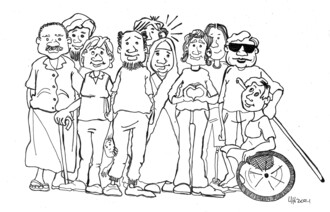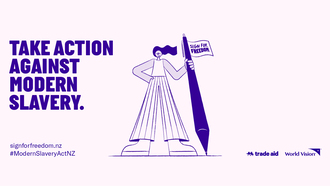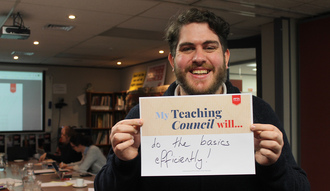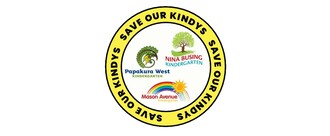-
Disabled people deserve their full equitable rightsEveryone should feel included in our society and have access to opportunities. The Government has a responsibility to ensure disabled people can access their full and equal rights. They can do this by ensuring the Ministry for Disabled People is led and run by disabled people. This will enable a society where disabled people can be fully included to be able to fully participate. Disabled form 24% of Aotearoa’s population yet experience inequitable access to health and disability services, education, a lack of accessible housing, lower employment statistics and struggle to break out of poverty through no fault of their own. There are many barriers disabled people face because society is built inaccessibly. For too long disabled have been ignored and denied equitable access and it is long overdue to bring them in from the cold. The Ministry of Social Development and Ministry of Health announcement of a non-disabled person, in the form of career official Justine Cornwall, to head the establishment unit of the new Ministry for Disabled People is deeply concerning. Disabled are generally unhappy that the new transitional director is not disabled and the voice of disabled is not present. Nothing is transparent and open which is concerning disabled that this will be led but from a non disability framework. We believe that while the position is a fixed-term role, the Establishment Director will be critical in setting a culture of inclusion and accessibility that is different from the judgemental, patronising culture of the past. For the sake of authenticity, a leader who identifies as a member of the disability community should have been in that role. However, the hope is that the appointment of the permanent head of the ministry will lead to a disabled person heading it. We want nothing about us without us, including in the development of the new Ministry. Please support our petition to help us gain full, non-disabling access to society. Remember disability is the only identity that does not discriminate.4,731 of 5,000 SignaturesCreated by Huhana Hickey
-
Prevent Cervical Cancer! Introduce HPV Self-Testing to Aotearoa – We Need it NOW.A Human Papilloma Virus (HPV) test as a screening test is a proven BETTER TEST than a cervical smear. Cervical cancer is now preventable. We have had the HPV vaccination introduced (free for all aged 9-26 years) - the next urgent step, to save more lives, is the introduction of HPV self–testing. HPV causes almost all cervical cancers. Testing for HPV is now a more effective and safer screening test to prevent cervical cancer than the current screen of cervical cytology (the smear). Everyone with a cervix can do it for themselves! The science is irrefutable. The current screening system is inferior, inequitable and unacceptable. Government have knowingly persisted in using the inferior cervical screening test which will see more women lose their lives. The Ministry of Health is committed to introducing HPV primary screening and self-testing but implementation of this requires government funding to support the programme change - the current screening register is not fit for purpose. HPV self-testing will address inequities in cervical cancer. Wāhine Māori are more than 2.5 times more likely to die of cervical cancer than non-Māori. HPV self-testing is a game changer. The self-test has already been proven to be a very acceptable test for those wāhine under/never-screened. It can be done at a clinic, at home, where-ever is best. Anyone who has a cervix, including trans, non-binary and intersex people can get cervical cancer however it’s hard to love having a cervical smear. It’s uncomfortable, it’s invasive and for some there is also anxiety, whakama, mistrust and previous bad or traumatic experiences. Māori and non-Māori will suffer unnecessary harm and death from cervical cancer unless this new HPV self-test is urgently introduced. We want to see all who are eligible for cervical screening offered this better test. The World Health Organisation is pushing for global elimination of cervical cancer – because of its high level of performance, countries are being encouraged to transition to HPV testing as the primary method of screening. Other countries have already switched to HPV testing as a primary test including England, Sweden, Norway, Denmark and Australia. Let's make Aotearoa New Zealand next! Our lives matter. Me aro kī te hā o Hine–ahu-one - Pay heed to the dignity of women. Ngā mihi, Tracey, Francesca, Jordy, Vanessa, Natalia & Kim - on behalf of many others who want this heard, those who are already diagnosed and in memory of those who have tragically lost their lives to this preventable cancer. This petition has the backing of Smear Your Mea, the Royal New Zealand College of General Practitioners, Te Rōpū Whakakaupapa Urutā (National Māori Pandemic Group) and the Royal Australian and New Zealand College of Obstetricians and Gynaecologists. Recent media coverage: https://www.newshub.co.nz/home/health/2021/04/why-the-government-should-introduce-self-testing-kits-for-hpv.html More information can be found at: https://www.nsu.govt.nz/health-professionals/national-cervical-screening-programme/hpv-primary-screening7,450 of 8,000 SignaturesCreated by Tracey Mackay

-
Paid Paternal LeaveRight now in New Zealand, paternal leave is optional and only at a maximum of up to 2 weeks of unpaid work leave. Extending this for a longer period of time with pay would have many benefits. Some of which include: a break for mothers, especially those who are suffering postnatal depression. As well as, fathers feeling more encouraged to take time off to spend with their baby, and research proves that this initial bond with fathers improves every aspect of the child hauora further along in life. The paid paternal leave provides the fathers with motivation to actually take time off. Being a parent is hard, although this would not make parenting a piece of cake, however, it would make it that much easier. Paternity leave in New Zealand: https://www.findlaw.co.nz/articles/4283/paternity-leave-in-new-zealand.aspx Modernising Parental Leave - Regulatory Impact Analysis: https://www.mbie.govt.nz/assets/f58553252a/ris-2015-modernising-parental-leave.pdf How does Swedish parental leave work? https://everythingsweden.com/parental-leave-in-sweden/ Few Kiwi dads taking paid parental leave for fatherhood https://www.nzherald.co.nz/nz/few-kiwi-dads-taking-paid-parental-leave-for-fatherhood/ORMFAUOCSWWZP6OEMQ3ZUR4QDM/165 of 200 SignaturesCreated by Brennaya Lawley
-
Save our maternity sector from crisisWhānau forms the foundation of our society. If we treat all families well and support them to thrive from the get go, our communities will flourish. We need to start investing real money and resources into whānau wellbeing, starting with maternity care. Over the last 12 months we’ve seen the ability of our government to respond rapidly and decisively to a crisis. We’ve seen them open their purse and pour money into our economy. We know that they’re capable of making big decisions to save lives and keep our communities safe. And now we need to see them step up with that same kind of energy to address the maternity crisis that we are in. Every pregnant person, parent and baby in Aotearoa deserves the very best care that we can provide as a society. The compassionate and skilled midwives and doctors providing life-changing and life-saving care across Aotearoa deserve to work in conditions where their wellbeing - as well as that of their patients - is protected. Right now we’re not even coming close, but together we have the power to change this. Our government works for us, and it’s our responsibility to join our voices and demand that our government solves this crisis. Not through incremental changes and stop-gap funding, but through a full rebirth of our maternity sector. Thank you for signing this petition. Further Information: PMMRC 14th Annual Report (2021) https://www.hqsc.govt.nz/our-programmes/mrc/pmmrc/publications-and-resources/publication/4210/ PMMRC recommendations https://www.hqsc.govt.nz/assets/PMMRC/Publications/14thPMMRCreport/Appendices_B-F_Recommendation_tables.pdf RANZCOG commentary on Maternal Mental Health https://ranzcog.edu.au/news/ranzcog-backs-call-for-action-to-reduce-inequitabl MERAS 2020 election priorities https://meras.midwife.org.nz/wp-content/uploads/sites/4/2020/07/MERAS-Election-Priorities.pdf Media commentary: https://www.rnz.co.nz/national/programmes/ninetonoon/audio/2018783765/baby-mortality-for-young-maori-pacific-indian-mothers-needs-urgent-action-report https://www.rnz.co.nz/national/programmes/ninetonoon/audio/2018783766/capital-s-hospital-maternity-service-stretched-paper-thin-midwives-union https://www.rnz.co.nz/news/national/436561/crap-pay-and-horrible-conditions-midwives-at-breaking-point-in-capital-dhb https://www.rnz.co.nz/news/national/436784/fatigue-burnout-as-dhbs-stretched-to-the-limit-union-warns7,707 of 8,000 SignaturesCreated by Kirsten Van Newtown
-
Take Action against Modern Slavery40 million people globally are in modern slavery. Unlike many other countries, New Zealand has no legislation that requires companies to undertake due diligence looking into the risks of modern slavery within their supply chains and taking actions to address those risks. Modern Slavery legislation is a key way for New Zealand companies to work together to eliminate modern slavery in private and public sector supply chains. WHAT IS MODERN SLAVERY? Modern slavery is the severe exploitation of other people for personal or commercial gain. Modern slavery is in the clothes you wear, the coffee you drink and the goods you love. WHY DO WE NEED A MODERN SLAVERY ACT? 40 million people globally are in modern slavery. There are more people in slavery now than in any other time in history. The world is small and interconnected. Every time we purchase a product there is a chain reaction felt around the world. No country or industry is unaffected. Unlike many other countries, New Zealand has no accountability legislation that addresses transparency in supply chains. This means that New Zealand companies could unknowingly be importing products or services by which people are exploited and enslaved. WHAT WOULD A MODERN SLAVERY ACT DO? Modern Slavery Acts make it easier for a consumer to expect slavery-free products and services from companies. They help prevent slavery through transparency and accountability. They require businesses to understand the risks of modern slavery in their purchasing, to report on those risks and take action to address them. They give the business community guidance and a level playing field. For further information, resources and to get involved check out our campaign website - https://www.signforfreedom.nz/20,874 of 25,000 SignaturesCreated by Trade Aid and World Vision .

-
Support Vaccines for People Not ProfitBased on current Covid vaccine supply projections, 9 out of 10 people in low-income developing countries won't get a vaccine in 2021. WTO rules allow pharmaceutical companies to enforce intellectual property rules like patents on their vaccines, blocking other manufacturers from producing the vaccine. This artificially restricts the supply of vaccines, driving up prices. In March, Aotearoa New Zealand should support the South African and Indian proposal at the World Trade Organisation to temporarily relax these rules for Covid-19 vaccines, so other manufacturers can increase global vaccine production and bring down prices. Currently wealthy countries are hoarding the limited supply of vaccine doses. Developing countries face a diminished allocation of vaccine doses, and a much longer pandemic. · This is unfair: access to life-saving equipment and medicines should not be based on who can pay; it should be based on need. · It is unsafe: delays on vaccinations around the world could leave us all unsafe. The virus, left to reproduce, will continue to mutate. · The free-for-all in buying up vaccines is exploitative: individuals and communities in developing countries have contributed to trials and are now being abandoned. · It will entrench global inequality: while wealthy countries get vaccines first, and their economies are able to open up, developing countries will still be fighting the pandemic. · Delaying worldwide vaccination will harm the global economy. A new study commissioned by the ICC Research Foundation found that the global economy could lose up to US$9.2 trillion if developing economies are denied access to Covid-19 vaccines. For more information on the People´s Vaccine and the South African and Indian proposal at the WTO, check out our article in The Spinoff: https://thespinoff.co.nz/society/29-01-2021/new-zealand-needs-to-get-on-board-the-peoples-vaccine/1,874 of 2,000 SignaturesCreated by NZ Alternative .
-
Deplatform Sia's ableist movie 'Music'This film is ableist and includes the torture of Autism Spectrum Disorder people with a restraint method that has caused death and is a cause of massive trauma for those who have survived it. I'm really terrified about the underdiagnosis of autism. I spent 36 years not getting diagnosed for it because of media portrayals like this that are inaccurate and harmful. The fact that this has been greenlit by NZ's cinema complexes is highly disturbing. This will do damage to the ASD community as well as prevent people from getting treatment for ASD. The under diagnosis of ASD because of bad science and media portrayals has been labelled a "lost generation". You can read a harrowing paper on the effects here in a very accessible format for non-science people: https://www.liebertpub.com/doi/full/10.1089/aut.2019.006915 of 100 SignaturesCreated by Rory McCarthy

-
Create a Teaching Council that works for teachersThe teaching profession has been facing a supply crisis for a long time. Attracting and retaining quality teachers is paramount if we are going to maintain the high standards of teaching and learning that New Zealanders expect and deserve. The pressures of the job are already such that young graduates and those considering a career change feel they can earn better money and have a better work-life balance elsewhere. Having to cover the cost of a registration and certification personally – unlike nurses or social workers, for instance, whose registration costs are covered by their employers – is another barrier that the profession cannot afford. Teachers deserve a Teaching Council that they can trust, and that trusts them. If we are to keep the profession to the world-leading standard that it is today, we must honour that with fair fees, a high-trust model of certification, and a Council that performs its core functions effectively and efficiently. Nothing more, and nothing less.3,443 of 4,000 SignaturesCreated by Chris Abercrombie
-
Reform our healthcare system to include all New Zealanders living with a Rare Disorder“No country can claim to have achieved universal healthcare if it has not adequately and equitably met the needs of those with rare diseases.” Helen Clark, United Nations Sue Haldane, a mother of a child with a rare disorder (22q Deletion Syndrome), has spent 17 years dealing with barriers within our health system to ensure her daughter Lizzie’s needs are met. Now Sue is determined that the journey will be easier for future generations of New Zealanders living with a rare disorder – currently around 6% of the population, or 300,000 people. “I would make no changes to Lizzie’s lovely self, but I crave many, many changes to the world she lives in,” says Sue. Despite the low prevalence of each rare disorder (defined as a health condition that affects 1 in 2,000 people or less), collectively they affect many families, with 1 in 17 people living with a rare health condition – more than those diagnosed with diabetes. Sue is leading the Rare Disorders NZ collective petition to Parliament, calling for the establishment of a National Rare Disorder Framework. Despite the range of rare health conditions, the rare disorder community encounter many common barriers within our health system, including access to care, medicines and support. New Zealanders would be shocked to learn that we lag far behind most OECD countries in supporting people living with rare disorders and their families to access the best healthcare. Australia announced support of a national plan for rare disorder patients in late 2018, ensuring that no one is left behind. New Zealand needs inclusive policies which acknowledge barriers for the thousands of vulnerable children, adults and their caregivers who continue to fall through the cracks. We believe a shift in mindset is needed for rare disorders to stop being considered in isolation, and instead to be regarded as a significant factor within health policy frameworks. This is in alignment with the global rare disorder movement headed by Rare Disease International. It’s time for New Zealand to take rare disorders seriously to ensure equitable health outcomes for everyone. Rare is part of our communities and deserves a fair go. [Statement from UN Development Programme Administrator Helen Clark to the International Conference on Rare Diseases & Orphan Drugs, Cape Town, 20 October 2016.]3,632 of 4,000 SignaturesCreated by Amy Watson
-
Give the Waikeria Uprising protesters food and waterThe way the Department of Corrections is currently handling the Waikeria Uprising breaches the human rights of these protesters. As human beings, the protesters deserve food and water. Currently, Corrections is denying them this and won't allow anyone in to deliver these basic needs. It would be an important sign of good faith to the protesters if they are granted this basic human right. Is New Zealand a country that starves people who are protesting for basic human rights?8,782 of 9,000 SignaturesCreated by People Against Prisons Aotearoa

-
Make Waka Ama an Olympic sportWaka ama is significantly and widely practiced in new zealand, tahiti and hawai'i. The level of competition is high throughout Te Moana Nui a Kiwa and the sport is still going strong despite Covid-19. There is cultural recognition of mana in the sport, outrigger canoe racing is a competitive and dominant sport, widely seen as good spectating friendly, the skill and technique is robust hard and fast, power and speed. Races: Midgets: W6 250m Intermediates: W6 500m straight & W6 500m turns / W1 500m & W1 250m dash J16s: W6 1000m turns & W6 500m straight / W1 500m & W1 250m dash J19s: W6 1000m turns & W6 500m straight / W1 500m & W1 250m dash Opens: W6 1000m turns & W6 500m straights / W1 500m & W1 250m dash Masters: W6 1000m turns & W6 500m straights / W1 500m & W1 250m dash29 of 100 SignaturesCreated by Pareoranga Te Kata

-
Save Our Kindys – Keep The Kindergarten Experience Alive!This petition is to demonstrate that the operational changes to be made to Mason Avenue Kindergarten, Nina Busing Kindergarten and Papakura West Kindergarten are not supported by families and the community. The Counties Manukau Kindergarten Association (CMKA) have been rolling out operational changes to all the kindergartens, which has resulted in the loss of the traditional kindy model. If this is not stopped, the last three kindergartens yet to change will be open from 8am – 3:30pm/5pm and will operate throughout the school holidays. Key points: • The quality of teaching and learning will be negatively affected by these operational changes. • Introducing multiple sessions and flexible drop off and pick up times will change the structure and create an unsettling environment for children. • Parents send their children to kindergarten to receive high quality early childhood education under a play based model that reflects the school day. • Longer hours for children - we believe the six hour session time of 8:30am – 2:30pm is long enough for 3-5 year olds. Current research supports this. • The kindergarten will be required to fill the spots for the extra hours so that funding is maximised. • Children need the holidays to rest and recharge, as do the teachers. • Kindergartens have long attracted high quality teachers and risk losing their staff due to unfavourable working conditions. • The choice parents have in regards to early childhood education is removed. A traditional kindergarten is different from a privatised daycare model. There are numerous other childcare centres in Franklin that have longer opening hours and availability during term breaks. • There will no longer be term breaks and fee paying families must continue to pay, regardless of whether their child attends or not. We strongly believe these changes are not in the best interests of our children and community. We propose that the CMKA responds to the community and Mason Avenue Kindergarten, Nina Busing Kindergarten and Papakura West Kindergarten continue to operate as a traditional kindergarten by keeping the current hours of 8:30am – 2:30pm and not operating during term breaks. These three centres are considered highly functioning kindergartens with large waitlists, active parent communities and strong fundraising capabilities - why fix something that isn’t broken? We will deliver the petition directly to CMKA CEO Calmar Ulberg and The Board of Management.727 of 800 SignaturesCreated by Jody Christie






.png)





